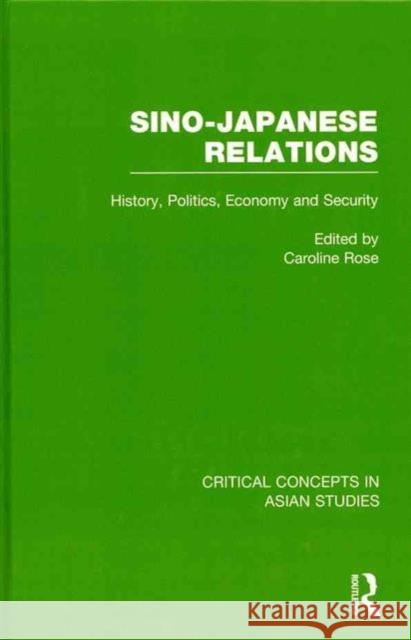Sino-Japanese Relations: History, Politics, Economy, Security » książka
Sino-Japanese Relations: History, Politics, Economy, Security
ISBN-13: 9780415566148 / Angielski / Twarda / 2011 / 1552 str.
Academic and popular interest in China and Japan, the two major powers in East Asia, has risen dramatically in the last decade. While on the one hand their relationship has benefited from high levels of two-way trade and investment underscoring their growing economic interdependence, political rifts have (re-)appeared over such issues as historical memory, territory, and energy security. Without doubt, the way in which this bilateral relationship will evolve over the next few years has the potential to transform the architecture of regional and international politics. It is therefore essential to have a deep and nuanced understanding of the historical, economic, political, and cultural dynamics of the relationship. The academic literature on all aspects of Sino-Japanese relations has burgeoned accordingly, and, in addition to the existing body of work, now provides a substantial, if somewhat overwhelming, corpus. This new Routledge Major Work collection brings together in an accessible format some of the most influential research on Sino-Japanese relations to help steer the reader towards essential texts and provide a comprehensive guide to this rapidly expanding field of study. Each volume contains an introduction by the editor which summarizes the key debates and contextualizes the gathered materials. It is an essential reference and teaching resource for undergraduate and postgraduate students, researchers, and policymakers, and others with an interest in East Asian history, politics, political economy, and international relations. The material in the collection is organized thematically, with Volume I providing the historical perspective, covering two thousand years of friendly exchange versus fifty years that overshadow the rest. Volume II focuses on the problems that have emerged since the end of World War II: history wars, revisionism, and reconciliation. Volume III considers the economic interaction between the two countries, covering aid, trade and investment, and regionalism. Volume IV is given over to traditional and non-traditional security threats, territorial disputes, energy security, environmental concerns and cooperation.











